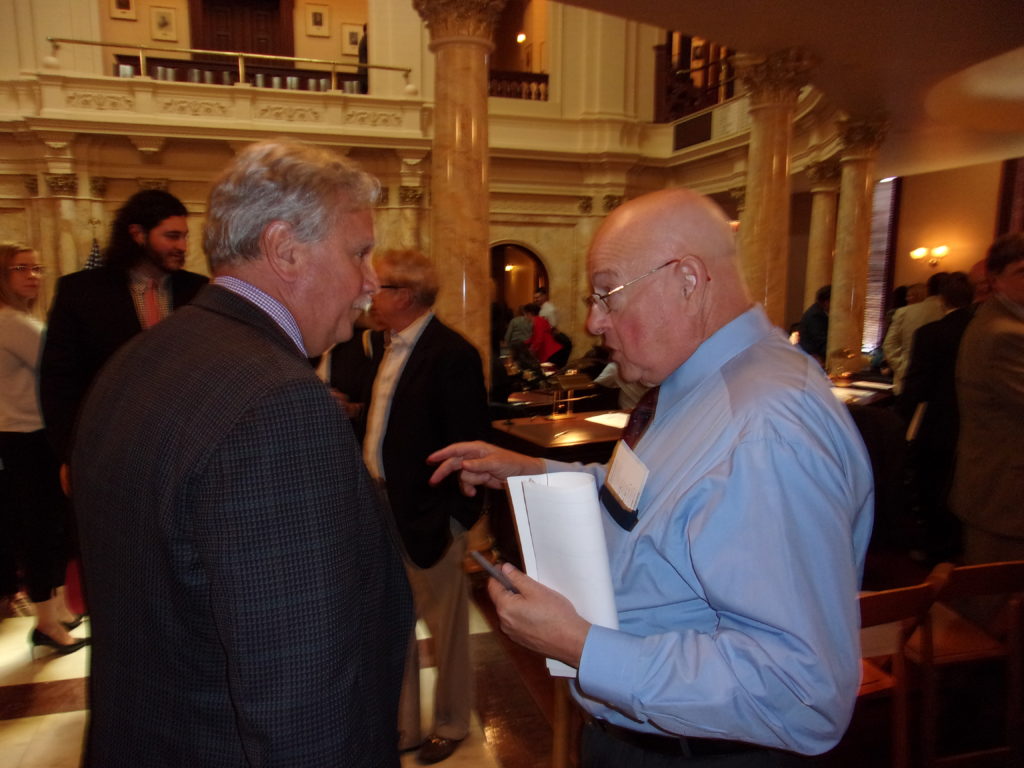Gov. Murphy CV’s Incinerator Food Waste Bill

Gov. Murphy CV’s Incinerator Food Waste Bill
Governor Murphy conditionally vetoed S1206(Smith). The bill requires large food waste generators to separate and recycle food waste and amends the definition of "Class I renewable energy." The bill was supposed to reduce food waste sustainably through composting and anaerobic digestion however there were last-minute amendments to it that would allow more food waste to be burned at incinerators and taken to landfills.
“Governor Murphy stopped a bill that would have increased our GHG’s and undermined New Jersey’s recycling efforts. Now the legislature need to work on a new food waste bill that uses composting and anaerobic digestion to reduce and reuse food waste in a sustainable way. In order to curb our food waste, we cannot burn it in incinerators or toss them into landfills that will generate more methane add to global warming. We thank Governor Murphy for letting the legislature work on a stronger and more efficient bill that will reduce New Jersey’s food waste in a greener and cleaner way,”said Jeff Tittel Director of the New Jersey Sierra Club.
The New Jersey Sierra Club had sent a letter to Governor Murphy asking for the following amendments to S1206(Smith)/A3726 (Gusciora). Clarifying the definition of "food waste;" Clarifying the definition of “alternative authorized recycling method” to provide that the gas recovered by anaerobic digesters includes renewable natural gas; Clarifying that the bill's provisions apply when the large food waste generator generates at least 52 tons per year within 25 road miles of an authorized food waste recycling facility; Providing that the requirements of the bill apply beginning on January 1, 2020 when a large food waste generator generates at least 52 tons per year; Adding language that a large food waste generator would be deemed in compliance with the requirements in the bill if it sends its food waste to a sanitary landfill facility that delivers landfill gas to a gas-to-energy facility, only if the gas-to-energy facility was in operation prior to the date of enactment of the bill or to a resource recovery facility that, beginning no later than four years after the date of enactment of the bill, processes the food waste it receives in an anaerobic digester.
“The Governor is doing the right thing on climate change by conditionally vetoing this bill. Incinerators and landfills are not an environmentally or economically sound option for reducing and reusing food waste. Incinerators and landfills must be opted out of in food waste bill. Garbage incinerators are not net zero and are large emitters of air pollutants that are hurting families and children, especially in Environmental Justice communities. Landfills produce methane and contribute to global warming. For all of this pollution, incinerators generate very little electricity. The Camden facility only generates around 21MW, Newark at 65MW, and Westville at 14MW,” said Tittel. “We need to be user greener technologies to reduce and reuse food waste. With 100 tons of food waste per day, anaerobic digestion can generate enough energy to power 800 to 1,400 homes each year.”
According to the NRDC, an estimated 40 percent of the food produced in the United States is wasted every year, totaling about 62.5 million tons and costing households, businesses and farms about $218 billion annually. Also wasted were the resources that went into producing that food, including 25 percent of all fresh water consumed, 13 percent of the total carbon emissions and 80 million acres of farmland used in the United States according to the EPA.
“Our legislature need to move towards passing a stronger and cleaner food waste bill for Governor Murphy to sign. Not only are we wasting millions of tons of food per year, we are wasting the energy and resources put into producing it. The water, the land, and the output of production which could be harmful to our environment. We cannot continue this unsustainable cycle. New Jersey will never be able to efficiently utilize our food waste if it is burned by incinerators or tossed into a landfill. The legislature and Governor Murphy need to move towards zero waste and zero carbon solutions when it comes to reducing and reusing our food waste,” said Jeff Tittel, Director of the New Jersey Sierra Club.





